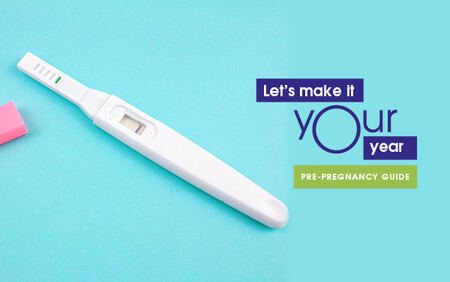
Let's Make It Your Year - Week 3
It’s a common misconception that fertility issues are caused by the female. It takes two to tango!
Causes of infertility are attributed to 35% female factors, 35% male factors and 20% combined female and male factors, with unexplained infertility occurring in about 10% of cases.
Standard fertility tests look for underlying reproductive conditions, such as PCOS, endometriosis or low sperm count, which can affect your chances of falling pregnant naturally.
If treatments for these conditions are unsuccessful, or in the case of unexplained infertility, there are more complex investigations that fertility specialists can undertake to identify the cause, and help you to conceive.
Older age:
- The single most important factor influencing fertility is a woman’s age, as her egg count and egg quality declines as she gets older, particularly after the age of 36.
- A man’s age can also cause infertility with studies indicating that sperm quality declines with age and there is an increased possibility of sperm DNA damage, which could result in complications in pregnancy, and after birth.
Recurrent miscarriage:
- Sadly, miscarriages are a common occurrence, with one in six pregnancies ending before week 20. Miscarriages can result from many reasons, include chromosomal, genetic or uterine problems, the woman and man’s age, and hormonal imbalances . Most patients who experience miscarriage will eventually go on to have a baby, so it is important to stay positive
- Specialists can conduct investigations to test for the possible cause of miscarriages and provide specialised care during the next pregnancy.
Chromosomal variations:
- Chromosomal variations are caused when an embryo has a missing or extra chromosome.
- These variations can affect up to 70% of early human embryos, with most causing the embryo to stop developing. A fertility specialist may discuss preimplantation genetic testing.
Thin endometrium (womb lining):
- A sufficiently thick endometrium is required to provide a site for proper implantation of a fertilised embryo and support its growth.
- If the lining becomes thin, it is difficult for the embryo to implant to the wall which may result in difficulties conceiving.
High sperm DNA fragmentation
- High sperm DNA fragmentation means that there is a higher than usual level of fragmentation of the DNA (genetic material) in the sperm.
- A sperm DNA fragmentation test is sometimes suggested for males.

Omega-3 Fatty Acids
Omega-3 Fatty Acids have been known to promote fertility, and a healthy pregnancy. The Dietologist's Maple, Ginger and Sesame Salmon is packed with healthy goodness and omega-3!

Warrior Princess Shape Workout!
Get fit and healthy with Warrior Princess' full body Shape Workout!

Mindfulness Podcast: Shame
Judith Krause covers the topic of shame - but not in the way you think.
Need a fertility friend?
During this programme you can head to our private Facebook group and chat with others who are trying to conceive. Hearing the experiences of other people on a similar fertility journey can be an invaluable source of support and encouragement.
Free information evenings
Hear from our fertility specialists on what factors affect your fertility and what you can do to maximise you chances of conceiving.
In case you missed it last week: Week 2 of Let's Make it Your Year >>>>